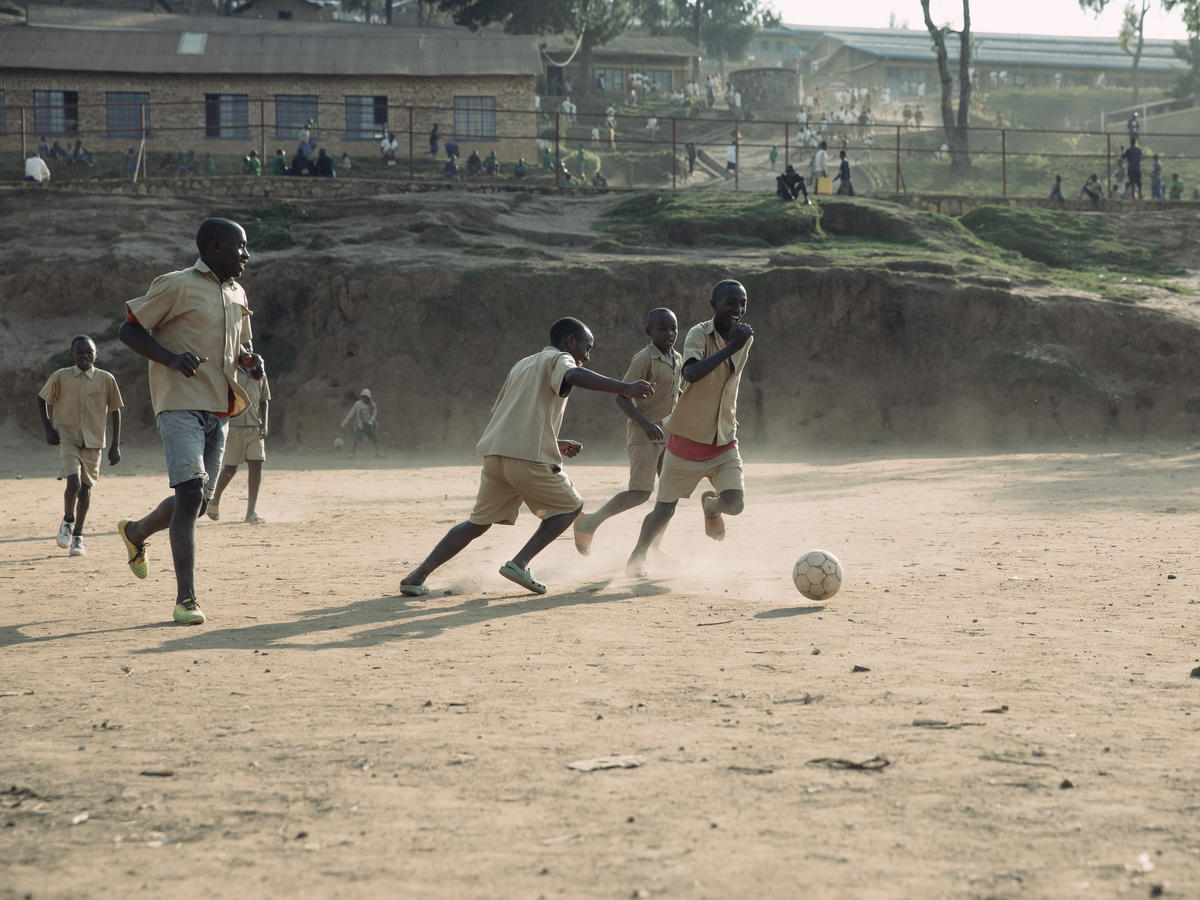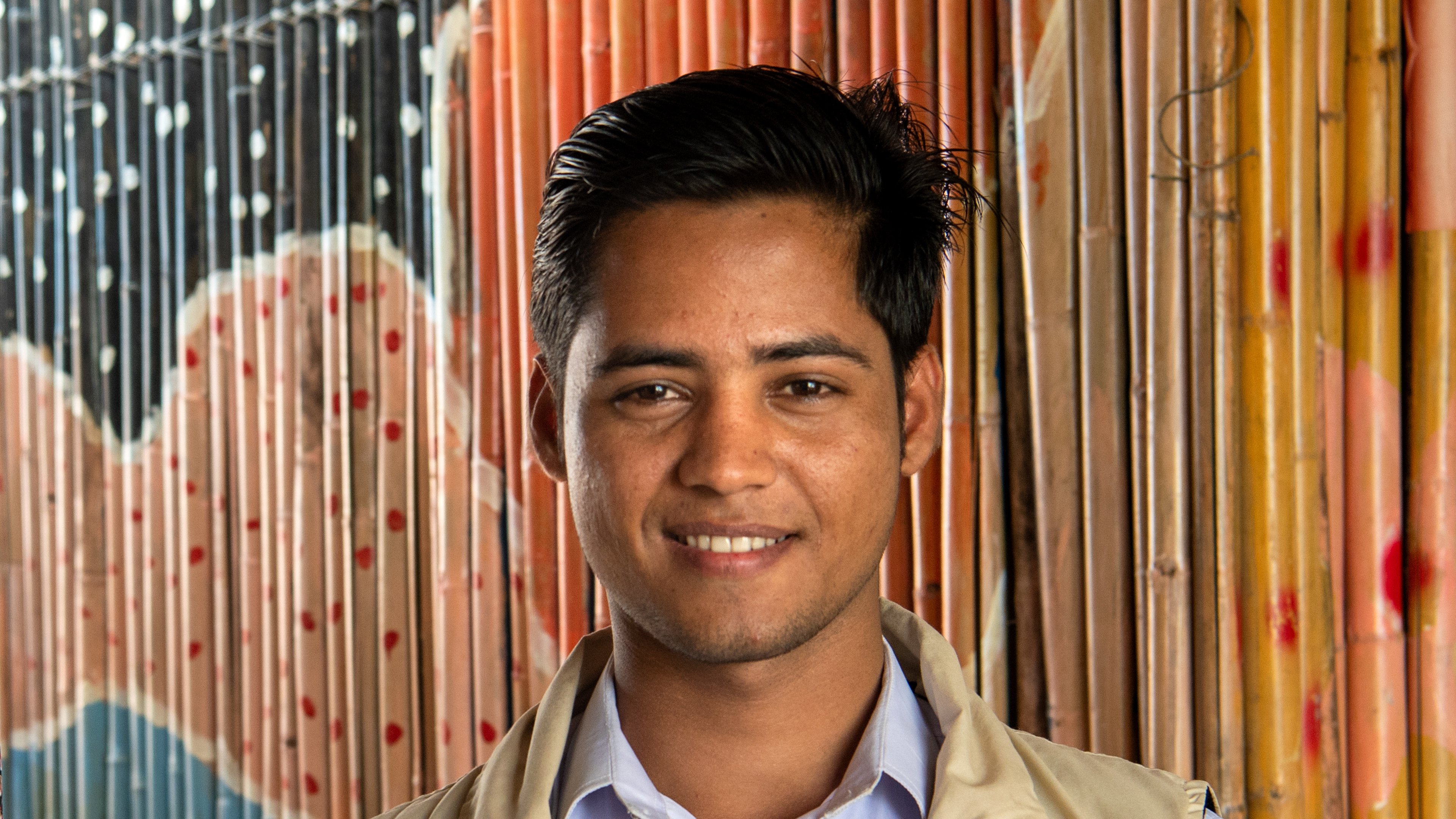Refugee Olympians wrap gifts, swap stories with children
Refugee Olympians wrap gifts, swap stories with children

PARIS, France – The children arrived laden with gifts, not for themselves but for youngsters who fled a conflict half a world away in South Sudan.
Fighting in the young African nations has created 1.3 million refugees. They are part of a huge population – more than 65 million people – uprooted by violence, persecution and natural disaster, around the world.
The French kids were taking part in an afternoon of activities organized by UNHCR, the Musée Quai Branly in Paris and Aviation Without Borders, which will deliver the toys. The goal is to bring the world of refugees closer to the French children.
“Even if the children go back with just one memory of today, one sentence, one story, it’s something."
To help them better understand, two athletes from the Refugee Olympic Team which competed in the 2016 Summer Games in Rio de Janeiro were on hand – Yiech Pur Biel, a South Sudanese 800-metre runner, and Rami Anis, a Syrian who competed in the pool in 100-metre butterfly event.
Pur, who fled to Kenya from South Sudan as a child, admitted that tears came to his eyes when he saw French children bringing presents and signing cards for South Sudanese children like him, forced into exile in Kenya.
“It showed me that in different parts of the world there are people who feel for refugees,” he said. “It means that we, as ambassadors for refugees, need to start with these people.”
Both athletes talked to the afternoon participants. Their stories were dramatic. Rami told of a promising swimming career cut short by war in Syria, and of his flight with his family across the Mediterranean from Turkey in a rubber dinghy. He was able to resume swimming in Belgium, his new country, and that led to a fulfillment of a dream – competing in the Olympic Games.
“We just want to send a message to the world,” Rami said. “We can do something, we can achieve things. I just want to say to everyone, believe in yourself.”
Pur’s odyssey was even more dramatic. He fled the conflict in his homeland when he was 10, and lost touch with his family. For 12 years he lived alone in a camp in Kenya. Then he began running and was picked for the refugee Olympic team. Rio, he said, changed his life.
“It showed me that in different parts of the world there are people who feel for refugees.”
After he spoke, a girl asked if he ever found any of his family again.
He said someone who knew his family had seen his name as a member of the team. They set up a phone call with his mother
“It was the first time when I was in Rio that I could communicate with my family,” he told the girl.It was an emotional moment. Pur hugged the girl and her mother, who cried as she stroked his arm.
But Pur underlined that many in his situation do not share such happiness.
“Most of the refugees in camps lose hope. They know where they came from, but they don’t know where they are going.”
Much of the afternoon was given over to sharing the tastes and the touch of materials from worlds the refugees were forced to leave. Children were invited to tear and prepare cloth dyed in bright and arresting patterns from West Africa to make festive garlands and balls.
And Mohammed el-Khaldy, a chef who fled Syria and had just received his French asylum papers, presided at a long table where participants made Syrian pastries.
“Even if the children go back with just one memory of today, one sentence, one story, it’s something,” said Céline Schmitt, the public affairs officer with the UN Refugee Agency who helped organize the afternoon. “Because they’re going to ask questions of their parents, talk to their friends. They’re going to talk about it at school.”














